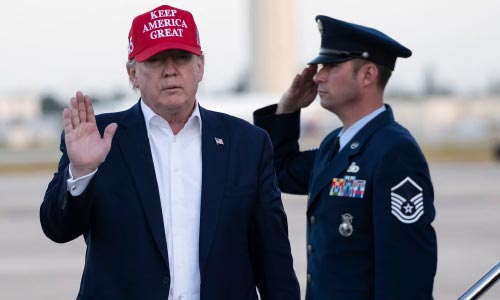Only few days are left for the start of the intra-Afghan dialogue, as stated in the peace agreement signed between the United States and the Taliban. The Afghan government is also in the midst of significant time. Afghanistan Independent Election Commission (IEC) announced the result of presidential election on 18 February, declaring and recognizing Ashraf Ghani as the winner. However, Ghani’s main rival, Dr. Abdullah Abdullah refused the result announced by the IEC. President Ghani tasked a commission to prepare the ceremony for him to take the oath of office on 27 February. Meanwhile Abdullah also declared himself as the Afghanistan’s elected president saying he would establish a parallel government through taking the oath of office simultaneously with Ghani.
The two sides have yet to reach an agreement. On a recent TV interview, Abdullah reiterated that if Ghani did not reach an agreement with him, he would also take the oath of office with Ghani in the presidential palace on the same day as him.
Undermining of the electoral process, including presidential and parliamentary elections, was ushered in during the second period of former Afghan President Hamid Karzai. He encountered similar issues, ongoing regarding presidential election, during his second round of tenure in office. The first round of Ghani’s tenure also started with similar challenge, as the establishment of the National Unity Government ensued, based on agreement. The last round of parliamentary election was also held in the worst possible way and its result came under severe criticism by the public and political factions. Since the current result of the presidential election has been debated amidst argument about peace talks, serious challenges have emerged.
Last year was horrible for the Afghan government and political actors. The government and its political opponents had eyed the result of presidential election so that they could design their comprehensive peace plan. Although President Ghani provided a written peace plan, as a result of political opposition, his political opponents and rival teams did not welcome it.
The main problem within the government body is lack of national consensus and political agreement. In the past five years, it was a National Unity Government and the two leaders, Ghani and Abdullah, had deep political discord on several issues and cases. So far, such deep-seated discord continues and even if the issues about the result of presidential elections and peace talks are resolved and the future government is determined, the discord between the two is likely to go on. Part of this problem roots in the structure of Afghan society, where political elites and ethnic leaders hold particular position. Political and ethnic leaders had held negotiations with the Taliban on multiple occasions within the last year, in turn, the Taliban pretend that they have no problem with the political and ethnic leaders and would sit to negotiate with them. On the other hand, the political elites and ethnic leaders, who were unable to maintain their influence and power within the government, seek to revitalize their past influence through holding direct talks with the Taliban group.
This week is highly significant for Afghanistan in terms of peace process. If Ghani and Abdullah could reach an agreement via discussion, with consideration to Afghanistan’s interests, and establish a strong and effective government, the stance of the government would be consolidated as one of the negotiating sides and the Taliban group would face a strong and unified administration. In such a case, the government would negotiate with the Taliban from the stance of power and defend the interests of both the state and nation. On the contrary, if the tension continues and, for example, both Ghani and Abdullah take the oath of office simultaneously, the worst-case scenario will occur and the serious crisis is likely to emerge. Subsequently, the power and energy of all politicians, officials, and political factions will be focused on domestic controversies and overcoming their political rivals.
Political maturity necessitates Afghan politicians to resolve their challenges through logical and democratic means. No single political party or individual will be able to negotiate with the Taliban leadership. All the government stakeholders and opponents had and will have stakes in the government. Meanwhile, it was them who fought against the Taliban regime and witnessed the level of the Taliban’s power and their destructive ability. They do realize that overcoming the tensions and challenges are possible only through unity and consolidation.
There is a sense of hope that within the current limited period, national and international struggles will yield the desired outcome so that the Afghan government will move with comprehensiveness and strength and represent the people of Afghanistan vis-à-vis the Taliban group in the best way.
Home » Opinion » Condition of Afghan Government on the Threshold of Intra-Afghan Dialogue
Condition of Afghan Government on the Threshold of Intra-Afghan Dialogue
| Moh. Reza Huwaida

